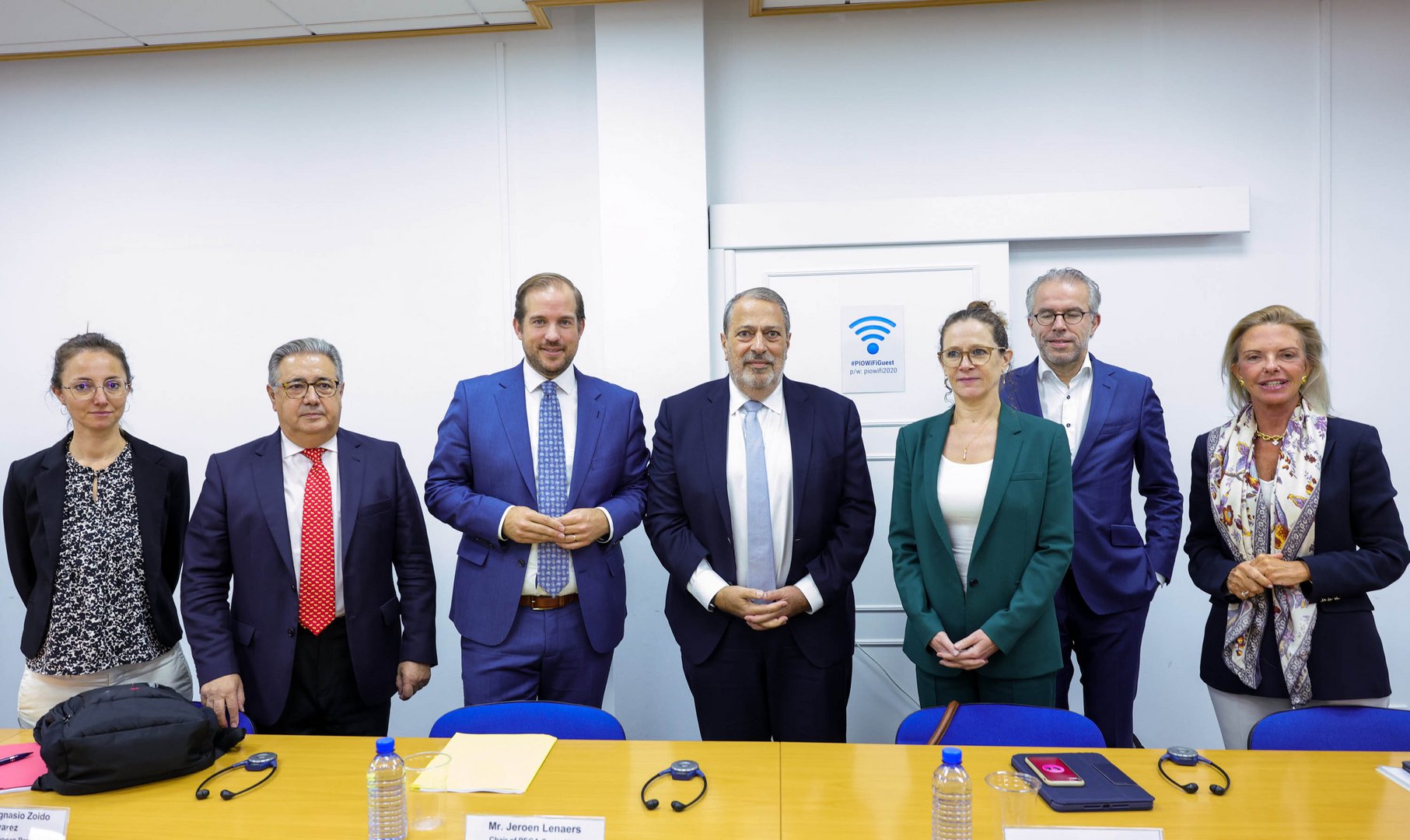Attorney general George Savvides said on Wednesday the independent criminal investigator Ilias Stephanou’s findings on the infamous ‘spy van’ case in 2019 cannot be made public as they are part of a criminal investigation.
Savvides spoke to journalists after meeting members of the European parliament’s committee of inquiry on Pegasus and other spyware (Pega), currently in Cyprus to shed light on the ‘spy van’ affair, as well as other spyware cases.
“There is a difference between an investigative committee and a criminal investigation,” Savvides said.
“Where investigative committee can comment on findings and evidence, criminal investigations are confidential, and its reports protected by the attorney general office.”
Savvides added that the ‘spy van’ case is now officially closed, it cannot be made public, and there are no reasons for reopening it again at the moment.
“However, I am fully aware of how important it is to protect everyone’s right to privacy. If at any time my office finds that there is enough evidence to issue a criminal investigation, I will be at Pega’s disposal and we will take all steps required,” he said.
Savvides added that the Republic of Cyprus “fully respects the constitutional right to privacy of communications, as stated in the constitution.”
“I had the opportunity to speak to the Pega chairman Jeroen Lanaers and other MEPs regarding the legislative framework that might allow for private conversations to be intercepted and recorded and under what strict conditions the right to privacy can be violated,” the attorney general said.
Lenaers, on his part, said he and his team will carefully examine all the answers provided by Cypriot officials on a range of issues, including the ‘spy van’ affair.
Along with Savvides, he held meeting with Commerce and Energy Minister Natasa Pilides and Deputy Research and Innovation Minister Kyriacos Kokkinos on Wednesday.
“We had an extensive exchange of views with the attorney general, who provided us with an in-depth analysis of the role in the legal system in Cyprus regarding spyware cases, in particular the one that broke out in 2019,” said the Dutch MEP, who added that Savvides disclosed as much as he could on the case.
Lenaers said Pega members will now carefully analyse all the information received in Cyprus before publishing a report on the findings in the context of the European parliament.
Asked whether the answers he received were consistent with Pega’s investigation, Lenaers said that before making statements on the subject and jumping to conclusions, he would need to confer with other sources of information.
“All I can say is that I received a great deal of information from the attorney general, as well as from the energy minister and the deputy minister of research and innovation. We will now have to study their answers and find a way to confirm them,” the MEP concluded.
The MEPs are visiting Cyprus and Greece this week to investigate the development and use of spyware in these member states.
Pega members also met the independent criminal investigator of the ‘spy van’ Stephanou. They also met journalists Makarios Droushiotis and Fanis Makrides, who compiled a 45-page report on the subject, allegedly containing evidence of an email sent by members of ruling Disy requesting a spyware software called “Predator” from former Israeli intelligence officer Tal Dilian.
This software was allegedly used against opposition politicians and journalists in Greece and is owned by a company formerly incorporated in Cyprus.
Following the arrival of Pega members in Cyprus, the Green Party on Wednesday released a statement recalling an incident regarding a stolen computer from the party’s offices a few months ago.
According to the statement, the computer was later returned to the party “loaded with surveillance softwares”.
“We are still awaiting information from the police on the status of the investigations related to our complaints.
“We suspect that the matter is linked to the alleged surveillance of political figures in Cyprus,” the statement said, adding that the seriousness of the issue does not allow for complacency.
A December 2021 report by Citizen Lab said Predator was developed by a company called Cytrox, whereas Pegasus is manufactured by the NSO Group.
The report quoted a 2019 article in Forbes, which stated that “Cytrox was ‘rescued’ by Dilian, whose company WiSpear (which appears to have been renamed Passitora Ltd.) is based in Limassol and reportedly acquired Cytrox in 2018”.
Speaking to Alpha, police spokesperson Christos Andreou said that authorities have strictly followed the relevant legislation when investigating the “spy van” case, denying that there had been a coverup of the affair.
“The matter was thoroughly and accurately dealt with in the past and the case went to court,” he said.
Last February, the Larnaca criminal court imposed a €76,000 fine on WiSpear over the “spy van” case.
The company was facing 91 counts across multiple charges – breaching privacy laws, attacks on information systems laws, breaching electronic communications laws, customs laws, and processing of personal data laws.
Effectively the company was accused of setting up an electronic device or system consisting of WiFi access points capable of intercepting private communications without permission.
The court cleared the company – which operates out of Larnaca – of 49 of the counts. The defendant pleaded guilty to the other 42 counts.
Fines ranging from €4,000 to €6,000 were imposed per count.
It also ordered that the police return to the company the ‘spy van’ as well as all electronic equipment seized by authorities during the course of their investigations.







Click here to change your cookie preferences